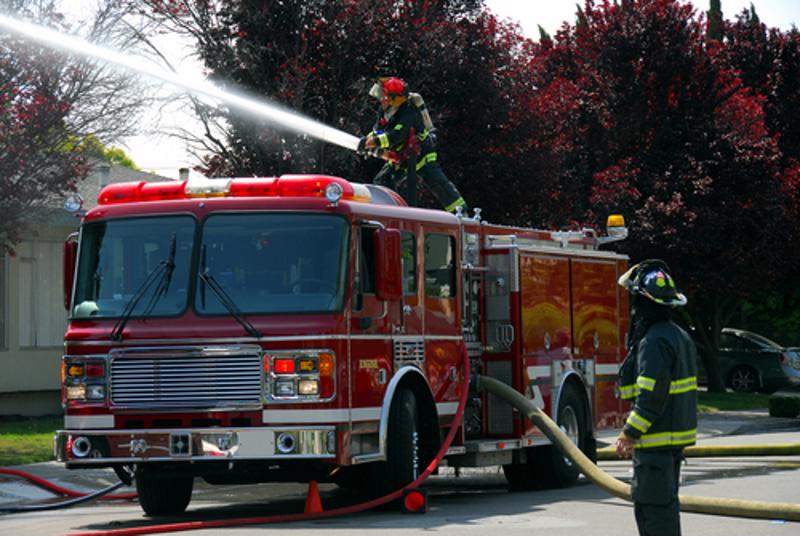Subscribe to our blog for all the latest news, updates, and events from MMA and our partners
Subscribe
If you talk to your average real estate professional about what the typical aspiring homeowner values the most when on the housing hunt, the agent is bound to tell you one factor almost always reigns supreme: location.
Whether it's situated near a shopping center or within walking distance to an elementary or high school, a house that's in a desirable area comes with a litany of benefits, from high quality of life convenience shopping to spending less on transportation. It's part of the reason why living in the city or suburbs tends to be costlier than living in moral rural climes.
But here's something that many people fail to take into account when they're in the market to buy: where their nearest fire station is located. Aside from the comfort in knowing where it is should there be an emergency, living near one may be able to save you money on your homeowners insurance.
"Nearly 500,000 structure fires take place each year."
Whether you're new to homeownership or have long had a place of your own, the thought of one's house being destroyed or damaged by flame is a scary one. Unfortunately, residential fires happen all the time. For instance, in 2016 - the most recent year for which data is available - there were 1.3 million fires reported to emergency responders, according to the National Fire Protection Association. Of these, about a third - 475,500 - were structure fires. They caused nearly $8 billion in property damage, which includes insured losses.
The quickness with which fire departments arrive where fires are occurring typically determines the extent of the damage. In 2015, fire and emergency personnel responded to an average of one fire every 23 seconds, according to the NFPA's estimates. That's impressive, given that a structure fire occurs somewhere in the U.S. once every minute or so and a residential structure specifically every 86 seconds.
Homeowners insurance is an important protection to have in place because it can offset some of the expenses that may stem from fire losses, whether they be minor or substantial. But how much you pay for coverage is, in part, influenced by where your house is situated relative to the nearest fire station.
What are fire ratings?
Fire ratings help with this process. Fire ratings are assigned numbers that actuarial firm Insurance Services Office sets. Valued 1 through 10, the numbers that communities are given are based upon how quickly, in the ISO's estimation, emergency responders can reach a fire when crews are alerted to one. The lower the number, the faster they can react to fires where and when they transpire.
But it isn't just the positioning of a fire station that the ISO takes into account when issuing fire ratings. The capabilities of the fire department in question are also factored into the equation. For instance, many communities have all-volunteer fire departments. Indeed, according to the National Volunteer Fire Council, of the nearly 29,750 fire departments nationwide, roughly 19,760 are all volunteer.
 Greater security isn't the only thing you can get from living near a fire department.
Greater security isn't the only thing you can get from living near a fire department.While these are undoubtedly important to have and worthy of praise - particularly those who are willing to participate and risk their safety - they're generally not as reliable as fire departments where paid personnel are readily available. Thus, communities with volunteer fire departments may be issued fire ratings that are lower than those that have paid emergency staff.
Paulette Wengeler, sales executive of personal lines at MMA Insurance, recommends taking advantage of services local fire departments and insurers make available.
"Some companies offer fire protection services for unprotected areas where they will come and do an assessment as to what you can do to keep the fire at bay," Wengeler said. "They will also use fire retardants on your home to protect it from serious damage. Most often there is little or no charge for these services."
Cost savings usually vary
Speaking of charges, you may be wondering how much you can save on homeowners insurance if you do, in fact, live a walk or short drive away from a fire station. Like most things associated with insurance, it's a case-by-case basis. However, in some instances, you may pay substantially less compared to those who live much farther away.
However, it's far better to get the right insurance versus coverage that's simply cheaper, warned Wengeler.
"The insurance coverage offered and the coverage you purchase must make sense for your home," advised Wengeler. "It is possible to get a lower price on your insurance, but what are you giving up? It's especially important to make good choices in unprotected areas, because damage to your home could be more extensive than a home that is in a protected area."
At Marsh McLennan Agency, we have the experience and resources to get you and your residence covered in a fully customized manner, based on your needs, circumstances and where you live. Talk to us to learn more.
Subscribe to our blog for all the latest news, updates, and events from MMA and our partners
SubscribeCopyright © 2026 Marsh & McLennan Agency LLC., All Rights Reserved.